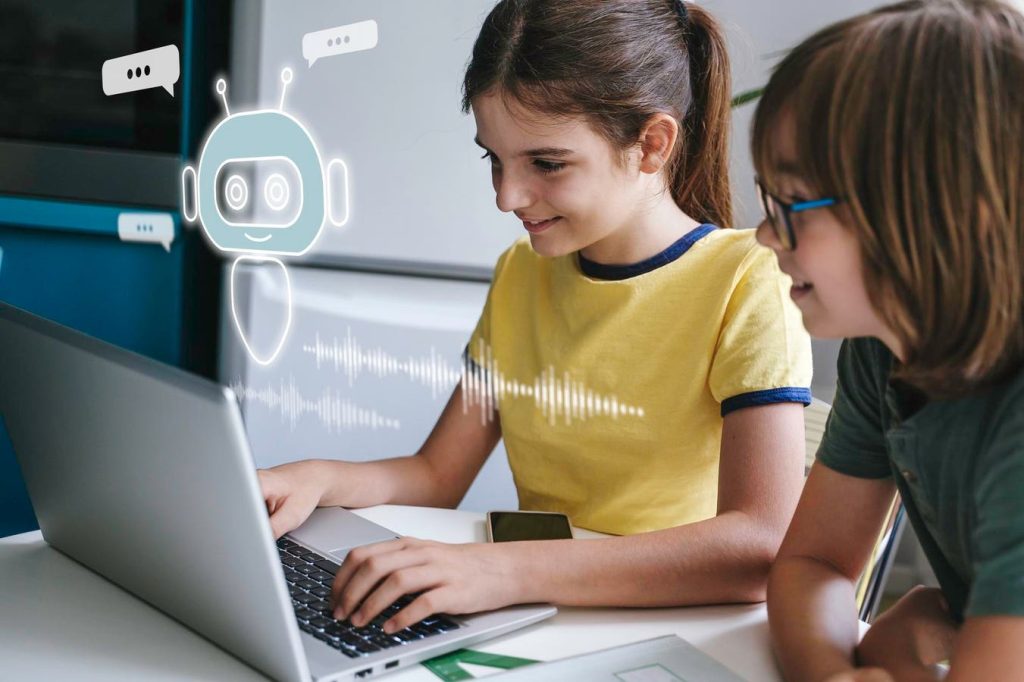Today’s workers are dealing with the reality that while AI might not necessarily come for their jobs, workers with AI skills will certainly be replacing workers without AI skills. Given the future workforce needs to be AI-ready, how is this going to impact education and learning? More importantly, how is the increasing use and adoption of AI impacting today’s teachers and students?
The education ecosystem is already seeing profound and disruptive change with AI providing new tools not only for educators and school administrators, but also for students who leverage AI tools to assist with their work and also let them dive deeper into material they need to understand.
AI-Enabled Learning: Self-Directed, Self-Paced, and Self-Empowering
Honing in on this hot topic, Sal Khan, known for his breakthrough Khan Academy and education leadership, writes about how AI is going to revolutionize education in his new book “Brave New Words: How AI Will Revolutionize Education (and Why That’s a Good Thing)”. From Khan’s positive perspective, he foresees that in the near future, AI will enable life-long learning by putting education access in the hands of anyone who wants to learn any topic. Students and educators will both use AI assistants that can educate and inform them on any topic at the required level of depth, and explain in a way that is most easily understood for each individual learner.
Furthering this idea, research firm Cognilytica writes about the concept of “Hyperpersonalized education” that will provide the lifelong learning we need from the moment we first learn how to speak and read, to the ongoing and continuous needs for education in our academic, work, and personal lives.
Indeed, we’re already seeing the impact on AI from a learning perspective as people use Large Language Model (LLM) systems to answer questions and provide insights in a way that they used to do with web searching. As web searches have become polluted with search optimized results, clickbait articles, and too-long articles that most have no patience or attention to read, people are beginning to turn to AI-powered systems to provide direct, relevant, and context and level-appropriate responses to very specific needs. With this sort of power now in our hands, the current one-size-fits-all world of today’s educational systems, online learning, videos, and online learning pales in comparison. For sure, the future of AI-enabled education is self-paced, self-directed, deeply responsive, and hyper personal to each learner’s needs.
AI Challenges for Learning Institutions
Learning institutions from K-12 through higher education and beyond are grappling with both the opportunities of challenges with the expanding use of AI. When AI systems provide hyperpersonalized education at the fingertips of students, educators will need to rethink how they are ensuring that students retain material, learn critical life skills, and know how to apply those skills to a future in which AI is no doubt going to disrupt the workplace.
As a very reactionary approach, learning institutions have currently attempted to restrict or ban the use of AI on campuses and in learning environments. However this is an effort doomed to failure. With AI capabilities embedded on phones, devices, and in online and desktop applications of all sorts, even embedded in emerging operating systems, no doubt any attempts to ban the use of AI will simply backfire.
Rather than trying to stymie skills that today’s students will need to learn in any case to survive in tomorrow’s workforce, educators will need to embrace AI capabilities to create new forms of tailored educational content, provide AI-enhanced capabilities to make sure students are deeply engaged with the material and can apply that learning, as well as ensure that students are mastering critical AI skills that they can use in the future. Just as educators learned to embrace the Internet and web to enhance learning, so too will educators come to appreciate the necessary capabilities that AI brings to the table.
A Return of “Soft Skills”
Furthermore, as AI systems increasingly require human capabilities to extract more value, we’ll see a resurgence in the value of so-called “soft skills” that are necessary to get full value from AI systems. To get value from generative AI prompts, people need to maximize their creativity, improve their critical thinking, increase collaboration with others, and improve their communication skills. These soft-skills have been put on the back burner over the past few decades as the “hard skills” of math, science, physics, biology, and engineering-related skills took center stage. Interestingly, it’s AI that’s making the soft skills more of a necessity so that people can use AI to help with the harder skills.
All of these changes to education come at a precipitous time for higher education. Already many are rethinking the value that a very expensive higher education can offer, especially from schools that have been typically considered prestigious. With a changing future workplace, changing ways in which people can get educated, and changing values for expensive higher education degrees, no doubt AI is poised to accelerate many of the fundamental changes in education.
Read the full article here






